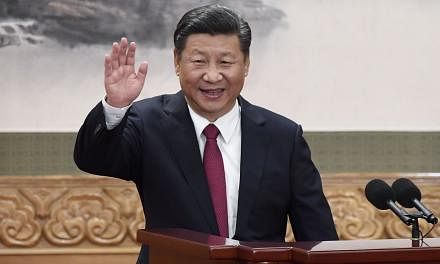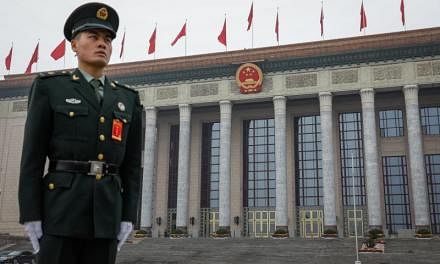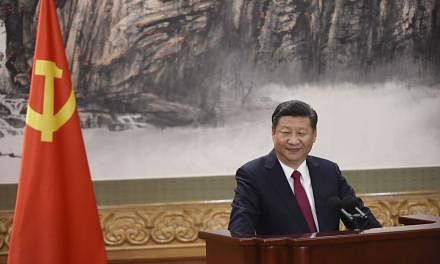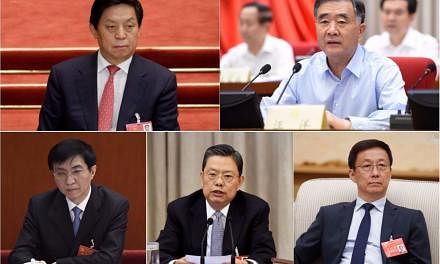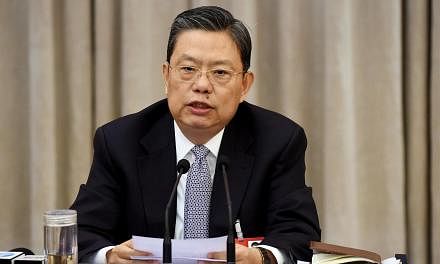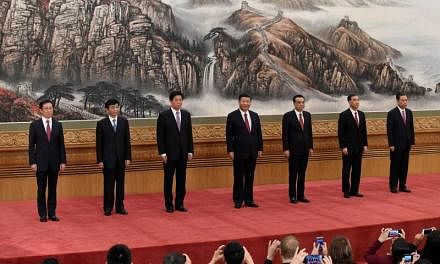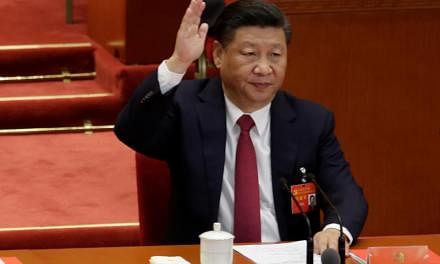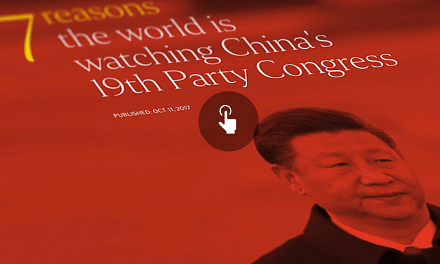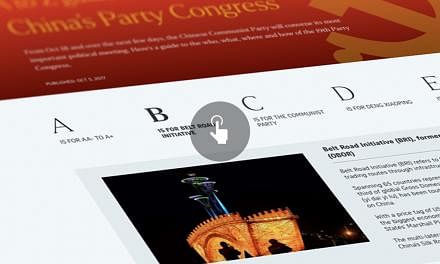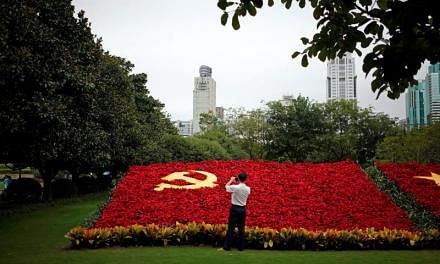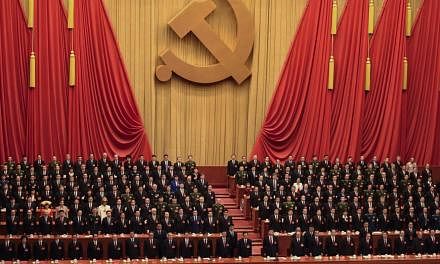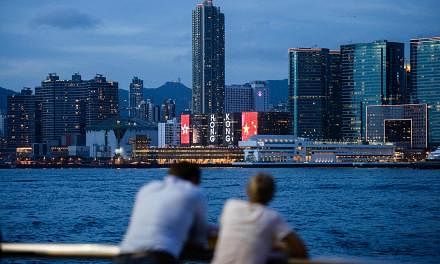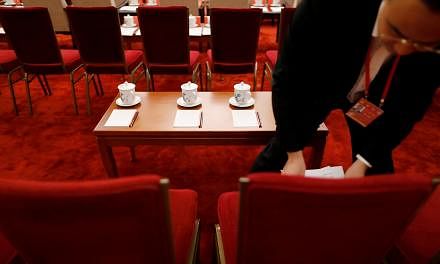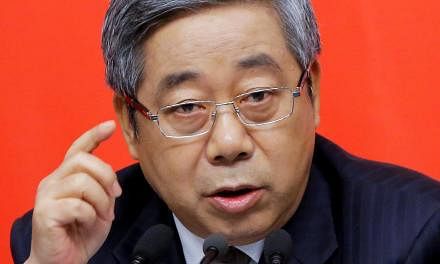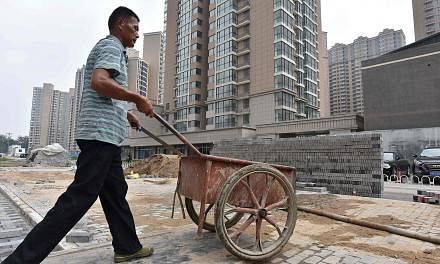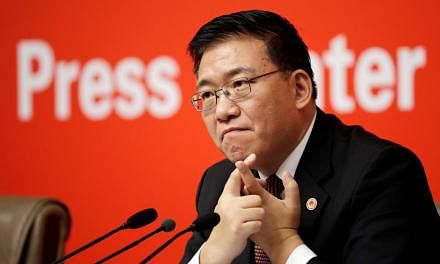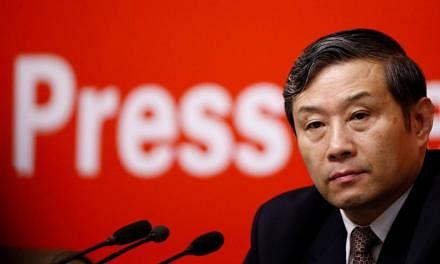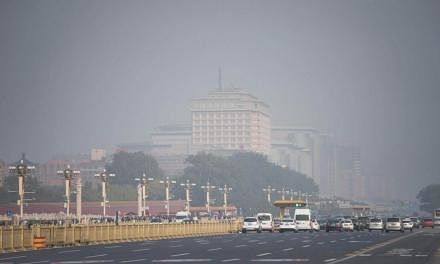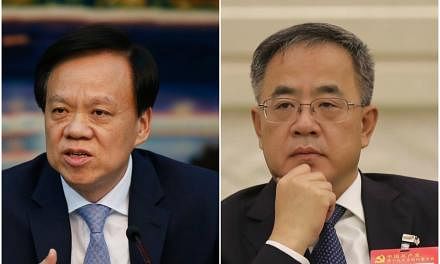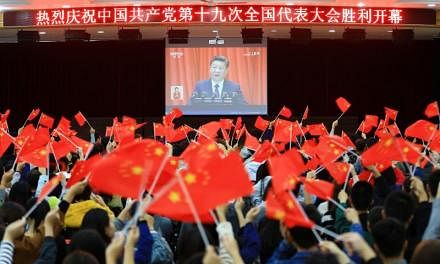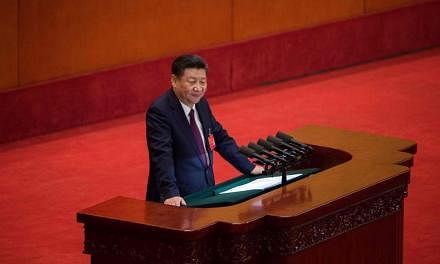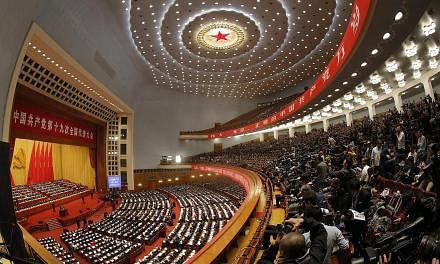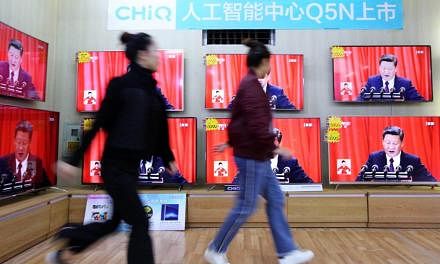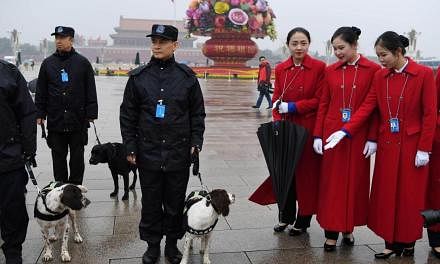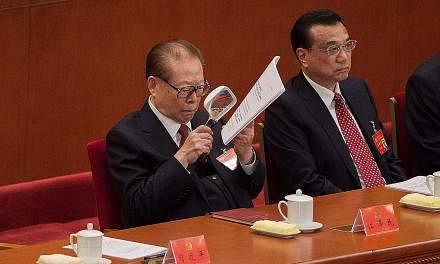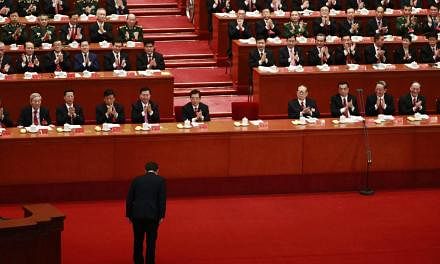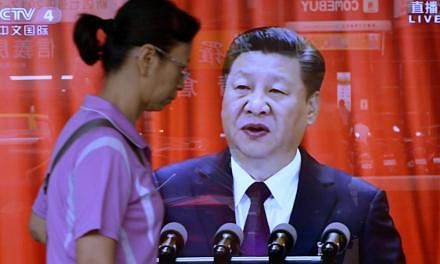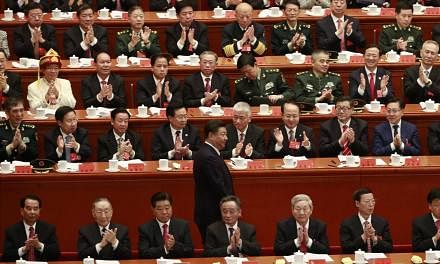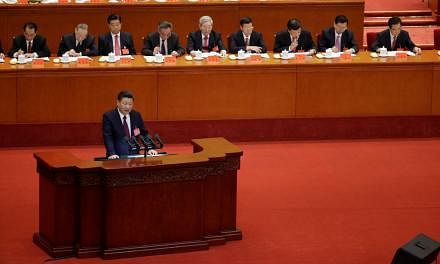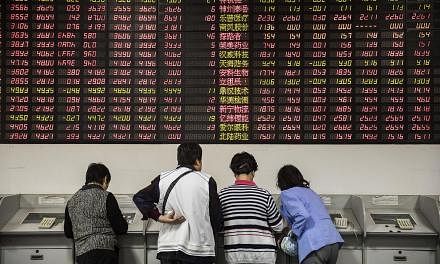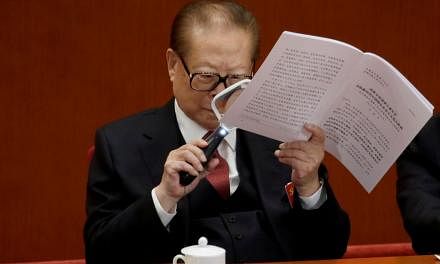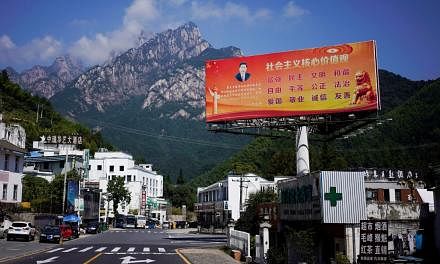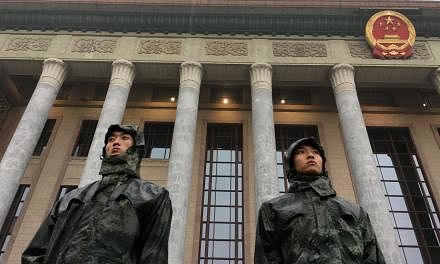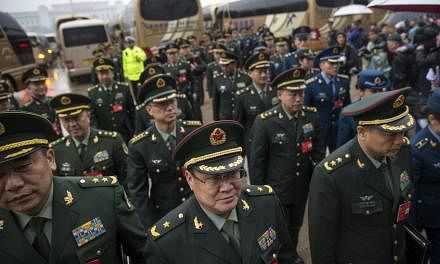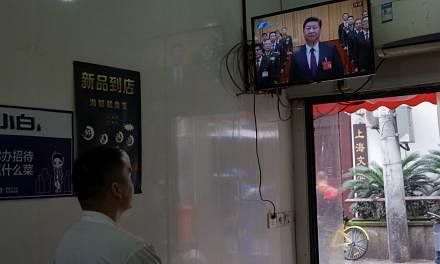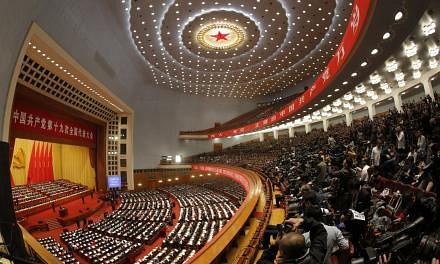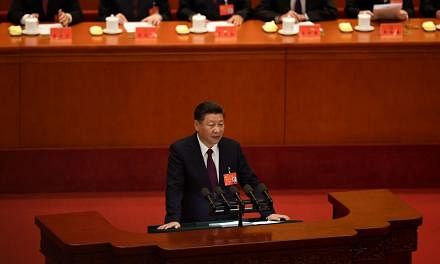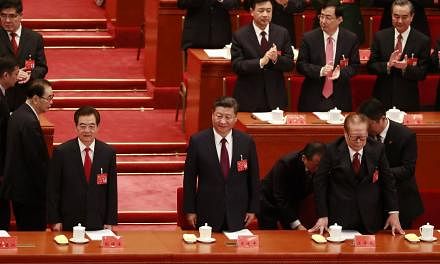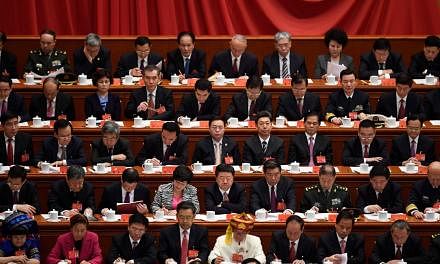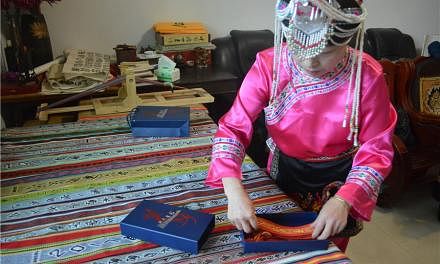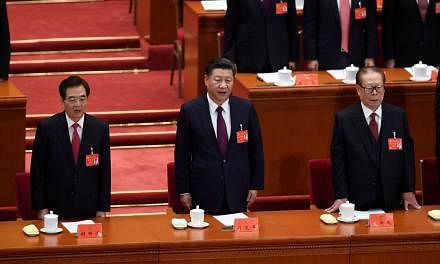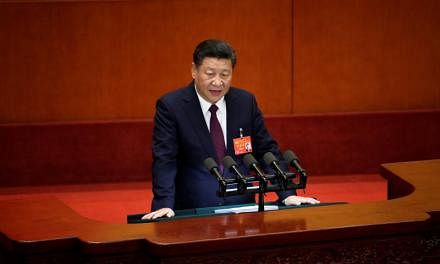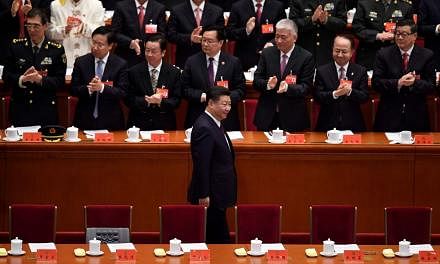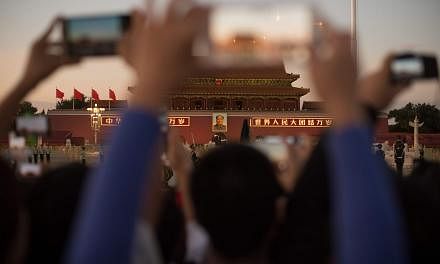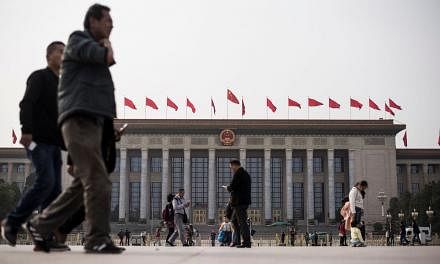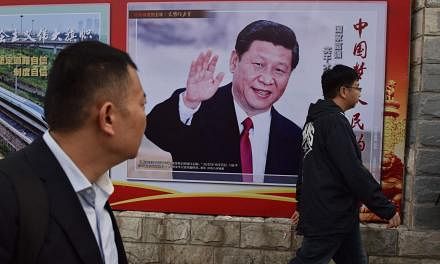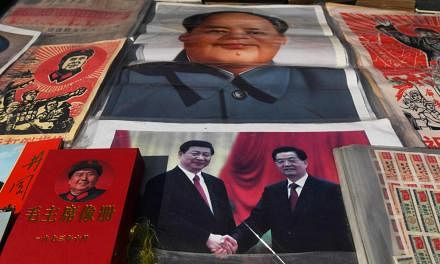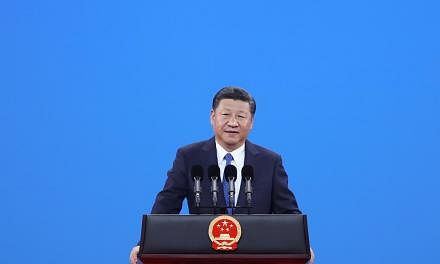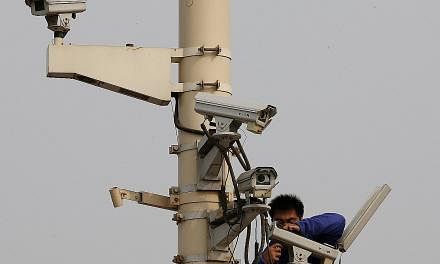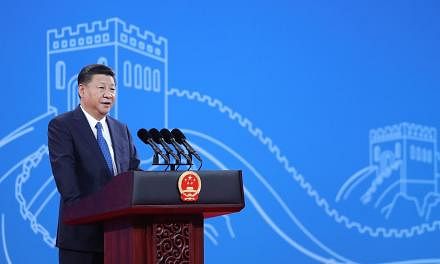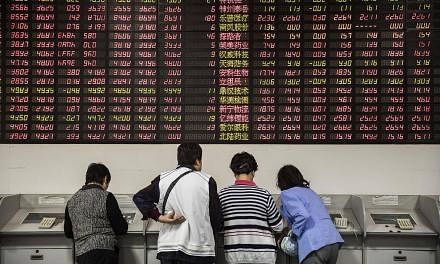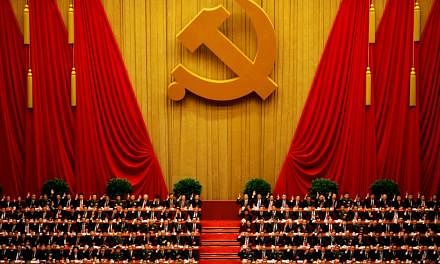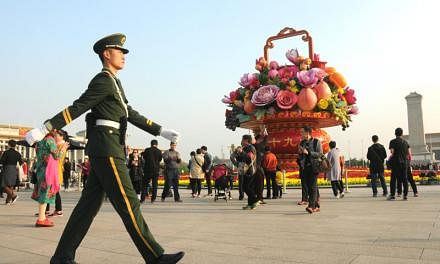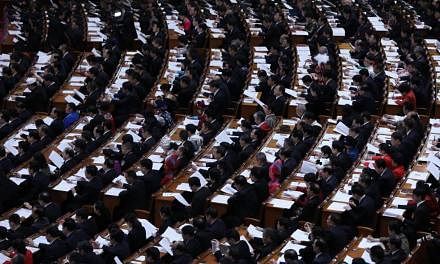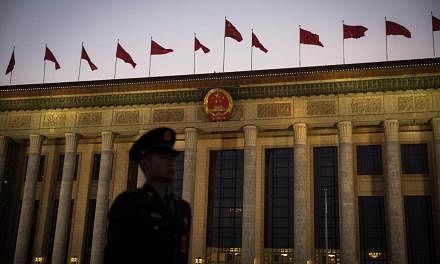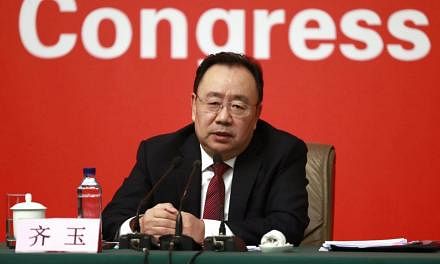BEIJING - China will continue its strategy of active foreign diplomacy, a choice that has seen its international influence grow in recent years, President Xi Jinping said on Wednesday (Oct 18).
Delivering his work report at the 19th Party Congress, Mr Xi said China has made "all-round efforts in the pursuit of major country diplomacy with Chinese characteristics" that has created an external environment favourable to China's development.
"We have seen a further rise in China's international influence, ability to inspire, and power to shape," he noted of his first five-year term in office.
Chinese foreign policy will continue on this path, said Mr Xi, and China will increase its assistance to the world's least developed countries, support multilateral trade regimes, and actively promote international cooperation through its Belt and Road Initiative (BRI).
China has in recent years moved towards playing a greater role in a range of international affairs, from global summits such as the United Nations (UN) to economic governance and climate change.
Under Mr Xi, China has become more assertive - even aggressive - as it seeks to become a leader on the world stage, a marked departure from the late Deng Xiaoping's cardinal rule to the party to "hide your strength and bide your time".
To ensure the success of its BRI that seeks to build infrastructure such as ports and roads across Asia, China has created the Asia Infrastructure Investment Bank and the state-owned Silk Road Fund, alternatives to international mechanisms such as the World Bank and the International Monetary Fund.
And while US President Donald Trump has threatened import tariffs and railed against jobs going overseas, Mr Xi went to Davos in January and defended globalisation in a speech that some observers said showed a transition in world leadership.
A week after Mr Trump withdrew the US from the 2015 Paris Agreement on climate change, Beijing convened a meeting of the world's energy ministers, reaffirmed its commitment to the climate change accord, and said it was on track to meet or exceed its 2020 carbon reduction targets.
But Mr Xi's push to "make China's voice heard and inject more Chinese elements into international rules", as he once remarked, includes reshaping the world order in China's image.
At the UN, China has pushed for "human rights with Chinese characteristics" that emphasise each country's unique history over a universal set of rights.
Likewise, Mr Xi has said he wants to rectify "imbalances" on how internet standards are set, and has sought other countries' support for China's idea of "cyber sovereignty", where each country has the right to ring fence its own internet space.
Mr Xi noted that the world is becoming more multi-polar, changes in the international order are speeding up, and that international forces are becoming more balanced.
"China will continue to play its part as a major and responsible country, take an active part in reforming and developing the global governance system, and keep contributing Chinese wisdom and strength to global governance," he said.


